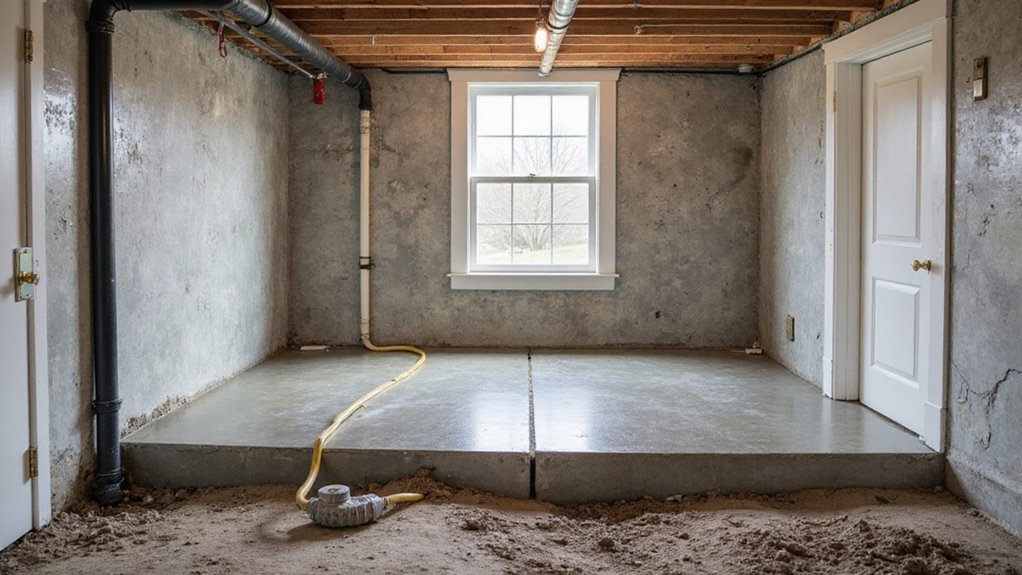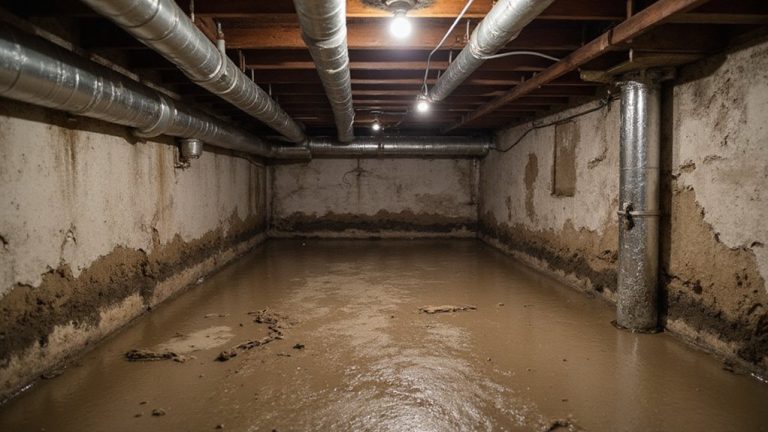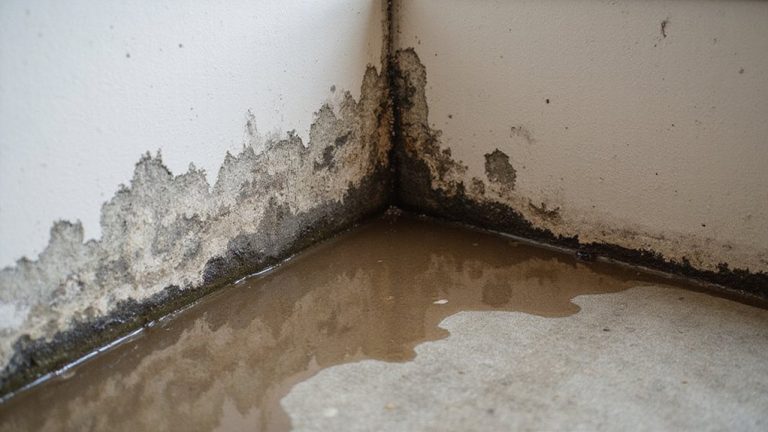Keeping your basement dry during heavy rains is a concern many homeowners face. While it may seem formidable, a few proactive steps can go a long way in safeguarding your home. From inspecting your drainage system to installing a reliable sump pump, you’ll explore effective strategies to protect your basement and precious belongings. By understanding the common causes of flooding, you’ll be better equipped to prevent this frustrating and potentially costly issue. Immerse yourself to unveil the key solutions that can give you peace of mind, even when the skies open up.
Identify the Common Causes of Basement Flooding
To safeguard your basement from flooding during heavy rains, it’s vital to understand the common causes. Blocked gutters can prevent proper drainage, allowing water to pool around your home’s foundation. Over time, this can lead to leaks and cracks in the foundation, providing an entry point for floodwater. Additionally, aging or improperly installed plumbing systems can malfunction, causing water backups and basement flooding. Foundation inspections can help identify potential issues before they become more costly to repair.
Inspect and Maintain Your Home’s Drainage System
Regularly inspecting and maintaining your home’s drainage system is essential to keeping your basement dry during heavy rain. Take the time to check for blockages in your gutters, downspouts, and underground drainage pipes. Monitor the flow of water as it moves away from your home’s foundation. If you notice any obstructions or sluggish drainage, address them promptly. Clearing debris and ensuring proper water flow can go a long way in preventing basement flooding. Investing in this proactive approach can save you the hassle and expense of dealing with a flooded basement down the line. Basement waterproofing can also help safeguard your home against water intrusion.
Install a Sump Pump and Backup Power Source
If your home is prone to basement flooding during heavy rains, installing a reliable sump pump and backup power source should be a top priority. Check for proper sump pump installation to guarantee it can efficiently remove excess water.
Equally important, ascertain backup power availability in case of electricity outages. This will keep your sump pump running and prevent water accumulation. With a well-functioning sump pump and backup power, you can feel more confident in keeping your basement dry and protected, even during the heaviest downpours. Prioritize this essential safeguard for your home.
Waterproof Your Basement Walls and Floor
Another key step in safeguarding your basement from floods is waterproofing the walls and floor. Installing drainage tiles around the perimeter can channel water away from your home’s foundation. Additionally, applying a moisture barrier to the walls and floor can prevent water seepage.
This specialized coating creates a protective barrier, keeping excess moisture at bay. Investing in these waterproofing measures provides an extra layer of defense against potential flooding, giving you greater peace of mind during heavy rains. Taking these proactive steps can help safeguard your basement and protect your prized possessions.
Elevate Vulnerable Appliances and Valuables
In addition to waterproofing your basement, raising vulnerable appliances and priceless possessions can provide an extra safeguard against potential flooding. Lift your furnace, water heater, and other essential equipment off the floor using proper electrical outlets and flood-proof storage solutions. This simple step helps prevent water damage and costly repairs.
Additionally, elevate any precious items, family heirlooms, or important documents to shelves or cabinets above the anticipated flood line. Safeguarding these items gives you peace of mind and protects your belongings during heavy rains. Taking these precautions can make all the difference in keeping your basement dry and your valuables secure.
Develop an Emergency Flood Response Plan
Developing an emergency flood response plan is a crucial step in safeguarding your basement from the devastating effects of heavy rains. First, monitor water levels closely and be prepared to take action if they start rising.
Establish a clear communication plan with your family, ensuring everyone knows what to do in case of an emergency. Designate a safe meeting spot outside your home and practice your evacuation route.
Keep important documents and cherished possessions in a waterproof container, ready to grab and go. With a solid plan in place, you’ll feel more in command when the rains come.
Consider Retrofitting Your Basement for Flood Resistance
Consider retrofitting your basement for flood resistance by exploring various strategies. Inspect your basement’s structural integrity to identify any cracks, leaks, or areas that need reinforcement.
Evaluate your flood insurance options to guarantee you’re adequately covered in case of a flood. Installing backup sump pumps, waterproofing walls, and elevating critical appliances can improve your basement’s resilience. These proactive measures can provide you with greater peace of mind and protection for your home.
Frequently Asked Questions
What if My Basement Already Has Standing Water?
If your basement already has standing water, you’ll need to hire professional cleanup services. Contact your insurance provider to see if the damage is covered. Don’t try to tackle this on your own.
How Do I Know if My Basement Needs Waterproofing?
Signs of moisture like dampness or mold indicate your basement needs waterproofing. Structural integrity issues like cracks or bowed walls also signal it’s time. Don’t wait – protect your home and feelings of security with proper basement waterproofing.
Can I Install a Sump Pump Myself?
You can DIY a sump pump installation, but it’s best to hire a professional. They’ll guarantee it’s done right and provide peace of mind if heavy rains come. A proper sump pump setup keeps your basement dry.
How Much Does Basement Flood-Proofing Typically Cost?
The cost for basement flood-proofing typically ranges from $1,000 to $5,000, depending on the installation process. It’s a worthwhile investment to protect your home and give you peace of mind.
What Should I Do if My Basement Floods During the Night?
If your basement floods overnight, inspect your drainage system and contact emergency services immediately. They can help address the issue and prevent further damage while ensuring your safety.


